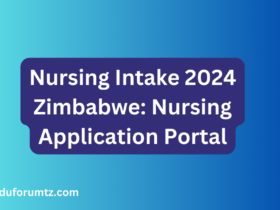Bachelor of Medicine and Bachelor of Surgery Degree;-In Tanzania, the Bachelor of Medicine and Bachelor of Surgery (MBBS) degree is the primary medical degree offered at universities. This degree program is designed to prepare students for a career in medicine and surgery, and it typically takes five to six years to complete. The curriculum covers a broad range of topics including anatomy, physiology, pharmacology, pathology, and clinical medicine.
There are several universities in Tanzania that offer the MBBS degree program. Some of the most popular universities include St. Joseph University in Dar es Salaam, Kampala International University, and the University of Dar es Salaam. Each university has its own unique curriculum, admission requirements, and tuition fees, so it’s important for prospective students to do their research before applying to a program. Students should also consider factors such as location, facilities, and faculty when choosing a university.
Overview of Bachelor of Medicine and Bachelor of Surgery Degree
Bachelor of Medicine and Bachelor of Surgery (MBBS) is an undergraduate degree programme in the field of Medicine and Surgery. The degree is awarded to students who complete a five-year medical program followed by a one-year internship. It is a professional degree that prepares students to become doctors and surgeons.
In Tanzania, there are several universities that offer MBBS programs. These universities include Muhimbili University of Health and Allied Sciences (MUHAS), Kilimanjaro Christian Medical University College (KCMUCo), Hubert Kairuki Memorial University (HKMU), and the University of Dodoma (UDOM).
The MBBS program in Tanzania is designed to provide students with a comprehensive understanding of the human body, its functions, and diseases. The curriculum includes courses in anatomy, physiology, biochemistry, microbiology, pathology, pharmacology, and clinical medicine. Students also receive training in communication skills, medical ethics, and professionalism.
Upon completion of the program, graduates are required to register with the Medical Council of Tanganyika (MCT) before they can practice medicine in Tanzania. They may also choose to pursue further specialization in various fields such as surgery, pediatrics, obstetrics and gynecology, and internal medicine.
Overall, the MBBS degree is highly respected and sought after in Tanzania. It is a rigorous program that requires dedication, hard work, and a passion for medicine. Graduates of the program are well-equipped to serve their communities as competent and compassionate healthcare professionals.

University of Dar es Salaam
The University of Dar es Salaam is the oldest and largest public university in Tanzania, offering a Bachelor of Medicine and Bachelor of Surgery (MBChB) degree program. The program is offered by the School of Medicine and is designed to prepare students for a career in medicine.
Admission Criteria
To be eligible for admission into the MBChB program at the University of Dar es Salaam, applicants must meet the following criteria:
- Have a principal pass at ‘C’ grade or higher in Chemistry or Biology/Zoology or Physics/Mathematics provided the other two subjects are not below D at “A” level.
- Pass the University of Dar es Salaam Entrance Examination with a minimum score of 50%.
- Meet the minimum requirements for admission to the university, including the possession of a Certificate of Secondary Education Examination (CSEE) with at least five passes in approved subjects, including credits in Chemistry, Biology, Physics, and Mathematics.
Course Structure
The MBChB program at the University of Dar es Salaam is a five-year program that is divided into two phases. The first phase is the pre-clinical phase, which lasts for two years and is focused on basic medical sciences. The second phase is the clinical phase, which lasts for three years and is focused on clinical medicine.
During the pre-clinical phase, students learn about anatomy, biochemistry, physiology, pharmacology, and pathology. They also learn about medical ethics, communication skills, and research methods. In the clinical phase, students are trained in various medical specialties, including internal medicine, surgery, pediatrics, obstetrics and gynecology, and psychiatry.
The program also includes a one-year internship, during which students work in various hospitals and healthcare facilities under the supervision of experienced doctors. This internship is designed to provide students with practical experience and prepare them for their future careers in medicine.
Overall, the MBChB program at the University of Dar es Salaam is a rigorous and comprehensive program that prepares students for a career in medicine. With a focus on both theoretical and practical training, graduates of the program are well-equipped to provide high-quality medical care to patients in Tanzania and beyond.
Hubert Kairuki Memorial University
Hubert Kairuki Memorial University (HKMU) is a private medical university located in Dar es Salaam, Tanzania. HKMU offers an undergraduate program in medicine, namely the Doctor of Medicine (MD) program. The university also offers four Master of Medicine programs through the Directorate of Postgraduate Studies. HKMU is recognized by the Tanzania Commission for Universities and is accredited by the government of Tanzania.
Admission Criteria
The admission criteria for the Doctor of Medicine program at HKMU are as follows:
- Holders of Doctor of Medicine (MD) or equivalent, BSc. Nursing, BSc. Environmental Health, BSc. Laboratory Technology or equivalent, Doctor of Dental Surgery, and Bachelor of Pharmacy or equivalent.
- Nurses and pharmacists must have obtained at least a lower second class.
Course Structure
The Doctor of Medicine program at HKMU is a six-year course. The first two years of the program are dedicated to pre-clinical studies, which include subjects such as Anatomy, Physiology, Biochemistry, and Medical Ethics. The next two years are dedicated to clinical studies, where students learn the practical aspects of medicine. The final two years are dedicated to clinical rotations, where students work in different departments of hospitals to gain hands-on experience.
Overall, HKMU is a reputable institution that provides quality medical education to its students. The university has a strong focus on practical training, which prepares its graduates well for their future careers in medicine.
Kilimanjaro Christian Medical University College
Kilimanjaro Christian Medical University College (KCMUCo) is a medical school located in Moshi, Tanzania. It is one of the few universities in Tanzania that offers a Bachelor of Medicine and Bachelor of Surgery (MBChB) degree. The university is dedicated to providing quality education and training to students who aspire to become medical professionals.
Admission Criteria
To be eligible for admission into KCMUCo’s MBChB program, applicants must meet the following criteria:
- Have a minimum of three principal passes in Biology, Chemistry, and Physics in their Advanced Certificate of Secondary Education (ACSEE) exams or equivalent.
- Have a minimum GPA of 3.0 in their ACSEE exams or equivalent.
- Pass an entrance exam administered by the university.
The university also considers other factors such as extracurricular activities and community service when evaluating applicants.
Course Structure
KCMUCo’s MBChB program is a five-year course that is divided into two phases. The first phase is a two-year pre-clinical course that covers basic medical sciences such as anatomy, physiology, and biochemistry. The second phase is a three-year clinical course that covers clinical medicine, surgery, and other specialized areas such as pediatrics and obstetrics.
The university also offers a range of other courses and programs in the medical field such as nursing, optometry, and physiotherapy. These courses are designed to provide students with the knowledge and skills needed to succeed in their chosen careers.
In conclusion, KCMUCo is a reputable medical school that offers a comprehensive MBChB program to students who are passionate about pursuing a career in medicine. The university’s high academic standards and commitment to providing quality education make it a top choice for aspiring medical professionals in Tanzania.
St. Augustine University of Tanzania
St. Augustine University of Tanzania (SAUT) is a private university located in Mwanza, Tanzania. It was founded by the Catholic Bishops of Tanzania in 1998 and was accredited in 2002 as a secular, non-profit, private institution. SAUT offers a Bachelor of Medicine and Bachelor of Surgery (MBBS) degree program.
Admission Criteria
To be eligible for admission to the MBBS program at SAUT, applicants must meet the following criteria:
- Have completed secondary education with a minimum of three principal passes in Physics, Chemistry, and Biology at the Advanced Certificate of Secondary Education (ACSEE) level or equivalent.
- Have a minimum grade of C in Chemistry, Biology, and Physics at the Ordinary Certificate of Secondary Education (CSEE) level or equivalent.
- Pass the SAUT entrance examination and interview.
Course Structure
The MBBS program at SAUT is a five-year course that includes both theoretical and practical components. The course is divided into three phases:
Phase 1
The first phase of the MBBS program at SAUT is the pre-clinical phase. This phase covers the basic medical sciences and is designed to provide students with a strong foundation in anatomy, physiology, biochemistry, pathology, microbiology, and pharmacology.
Phase 2
The second phase of the MBBS program at SAUT is the para-clinical phase. This phase covers the clinical sciences and is designed to provide students with a deeper understanding of the diagnosis, treatment, and prevention of diseases. This phase also includes clinical rotations in various departments of the hospital.
Phase 3
The third phase of the MBBS program at SAUT is the clinical phase. This phase is designed to provide students with hands-on experience in the diagnosis, treatment, and prevention of diseases. Students are required to complete clinical rotations in various departments of the hospital and are also required to participate in community health programs.
Overall, the MBBS program at SAUT provides students with a comprehensive education in medicine and prepares them for a career in the healthcare industry.
Nelson Mandela African Institute of Science and Technology
The Nelson Mandela African Institute of Science and Technology (NM-AIST) is a public institution located in Arusha, Tanzania. It is one of the universities in Tanzania that offers a Bachelor of Medicine and Bachelor of Surgery degree. The university was established in 2009 with the aim of providing high-quality education and research in science, engineering, and technology.
Admission Criteria
To be eligible for admission to the Bachelor of Medicine and Bachelor of Surgery degree program at NM-AIST, applicants must meet the following criteria:
- Have a minimum of two principal passes in Biology and Chemistry in their A-level examinations or equivalent.
- Have a minimum of a credit pass in Mathematics in their O-level examinations or equivalent.
- Pass the NM-AIST entrance examination.
- Meet any other requirements set by the university.
Course Structure
The Bachelor of Medicine and Bachelor of Surgery degree program at NM-AIST is a five-year course that is divided into two phases: the pre-clinical phase and the clinical phase. The pre-clinical phase is the first two years of the program, during which students study the basic sciences that form the foundation of medicine. The clinical phase, which is the last three years of the program, is when students begin to apply their knowledge in a clinical setting.
The following table shows the course structure for the Bachelor of Medicine and Bachelor of Surgery degree program at NM-AIST:
| Phase | Courses |
|---|---|
| Pre-clinical | Anatomy, Physiology, Biochemistry, Medical Genetics, Medical Microbiology, Medical Immunology, Medical Parasitology, Medical Statistics, Medical Ethics |
| Clinical | Internal Medicine, Surgery, Obstetrics and Gynecology, Pediatrics, Psychiatry, Community Medicine, Family Medicine, Emergency Medicine, Clinical Electives |
In conclusion, the Nelson Mandela African Institute of Science and Technology is one of the universities in Tanzania that offers a Bachelor of Medicine and Bachelor of Surgery degree. To be eligible for admission, applicants must meet certain criteria, and the program is structured to provide students with a strong foundation in the basic sciences and clinical experience.
Ruaha Catholic University
Ruaha Catholic University (RUCU) is a private university located in Iringa, Tanzania. RUCU is one of the universities in Tanzania that offer Bachelor of Medicine and Bachelor of Surgery (MBBS) degree. The MBBS program at RUCU is designed to equip students with the necessary knowledge, skills, and attitudes to become competent medical professionals.
Admission Criteria
To be eligible for admission to the MBBS program at RUCU, applicants must meet the following criteria:
- Have completed their secondary education with good grades in science subjects (Physics, Chemistry, and Biology).
- Pass the RUCU entrance examination.
- Pass the interview conducted by the RUCU admission committee.
Course Structure
The MBBS program at RUCU is a five-year program that is divided into two phases. The first phase is a two-year pre-clinical phase, which is followed by a three-year clinical phase.
During the pre-clinical phase, students are introduced to the basic medical sciences, including Anatomy, Physiology, Biochemistry, Pathology, Pharmacology, and Microbiology. Students also learn basic clinical skills such as history taking, physical examination, and communication skills.
The clinical phase is where students gain hands-on experience in real-life medical settings. Students rotate through various clinical departments, including Internal Medicine, Pediatrics, Surgery, Obstetrics and Gynecology, and Psychiatry. Students also participate in community-based activities, such as health education and disease prevention programs.
In conclusion, RUCU is one of the universities in Tanzania that offer the MBBS program. The program is designed to equip students with the necessary knowledge, skills, and attitudes to become competent medical professionals. To be eligible for admission, applicants must meet the admission criteria, including completing their secondary education with good grades in science subjects, passing the RUCU entrance examination, and passing the interview conducted by the RUCU admission committee.
Final Thoughts
Tanzania has several universities that offer Bachelor of Medicine and Bachelor of Surgery degree programs. These universities include St. Joseph University, Kampala International University, and the University of Dodoma, among others.
Prospective students who wish to enroll in these programs must meet the minimum entry requirements, which usually include three principal passes in Physics, Chemistry, and Biology with a minimum entry of 8 points. Additionally, they must have at least a C grade in Chemistry and Biology and at least a D grade in Physics.
The duration of the Bachelor of Medicine and Bachelor of Surgery degree program in Tanzania is not less than five years, unless the School of Health Sciences Board recommends and the university Senate approves.
Students who successfully complete the program can pursue various career paths, including working as doctors, medical researchers, or medical educators. They can also specialize in different areas of medicine, such as cardiology, pediatrics, or surgery, among others.
Overall, pursuing a Bachelor of Medicine and Bachelor of Surgery degree in Tanzania can be a great opportunity for students who are passionate about medicine and wish to make a difference in people’s lives.
Frequently Asked Questions
What universities in Tanzania offer a Bachelor of Medicine and Bachelor of Surgery degree?
There are several universities in Tanzania that offer a Bachelor of Medicine and Bachelor of Surgery degree. Some of these universities include Muhimbili University of Health and Allied Sciences, Kilimanjaro Christian Medical University College, and Kampala International University in Tanzania.
What are the admission requirements for studying medicine in Tanzania?
The admission requirements for studying medicine in Tanzania vary depending on the university. However, most universities require students to have three principal passes in Physics, Chemistry, and Biology with a minimum entry of 8 points. Students must have at least a C grade in Chemistry and Biology and at least a D grade in Physics. Some universities may also require students to take an entrance exam.
What are the first year courses for a Bachelor of Medicine and Bachelor of Surgery program in Tanzania?
The first year courses for a Bachelor of Medicine and Bachelor of Surgery program in Tanzania typically include Anatomy, Physiology, Biochemistry, and Medical Ethics.
How many years does it take to complete a Bachelor of Medicine and Bachelor of Surgery degree in Tanzania?
The duration of a Bachelor of Medicine and Bachelor of Surgery degree program in Tanzania is typically five years. However, some universities may offer a six-year program.
What is the cost of studying for a Bachelor of Medicine and Bachelor of Surgery degree in Tanzania?
The cost of studying for a Bachelor of Medicine and Bachelor of Surgery degree in Tanzania varies depending on the university. For example, Muhimbili University of Health and Allied Sciences charges TShs. 3,125,000/- per semester for the first four semesters and Tshs. 3,250,000/- per semester for the remaining semesters. Other universities may have different fees.
What are the qualifications required to become a medical doctor in Tanzania?
To become a medical doctor in Tanzania, one must complete a Bachelor of Medicine and Bachelor of Surgery degree and then undergo a one-year internship program. After completing the internship program, one must register with the Medical Council of Tanganyika and obtain a license to practice medicine in Tanzania.
- Top Universities for Information Technology(IT) in Tanzania 2023/2024: Full Guide
- Top Universities for Nurse Courses in Tanzania: Full Guide
- List of Pharmacy Courses Offered by Colleges and Universities in Mbeya Region 2023/2024
- Top Universities for Medical Laboratory in Tanzania: Full Guide
- MUHAS Fee Structure 2023/2024 Muhimbili University






Leave a Reply